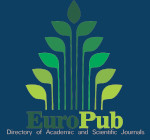Efeitos da temperatura na germinação de sementes de milho biofortificado
DOI:
https://doi.org/10.48017/Diversitas_Journal-v6i3-1902Abstract
ABSTRACT: For good germination, seeds need mainly oxygen, water and adequate temperatures, the latter being the most relevant factor in germination speed. Thus, the main objective of this work was to identify favorable temperatures for the germination of corn seeds (BRS-4104). The work was performed in the Seed Analysis Laboratory of the Assis Gurgacz Foundation University Center, in Cascavel, Paraná State. The experimental design was entirely randomized (DIC). Five temperatures were studied: 15 ºC, 20 ºC, 25 ºC, 30 ºC and 35 ºC, with 8 evaluation periods and 5 repetitions, with 25 seeds in each. The following variables were evaluated: germination velocity index (IVG), mean germination time (TMG), first count (PC) and germination of corn (G). The experiment means were submitted to variance analysis and compared by Tukey test, at 5% probability for all variables, using the ASSISTAT program. It was concluded that the ideal temperature for seed germination of the biofortified corn cultivar (BRS-4104) is between 20 and 35 ºC.
KEYWORDS: Ecophysiology, Seed germination, Zea mays.
Metrics
References
ALVES, E.U.; PAULA, R.C.; OLIVEIRA, A.P.; BRUNO, R.L.A.;DINIZ, A.A. Germinação de sementes de Mimosa caesalpiniaefolia Benth em diferentes substratos e temperaturas. Revista Brasileira de Sementes, v.24, n.1, p.169-178, 2002.
ARAÚJO NETO, J.C.; AGUIAR, I.B.; FERREIRA, V.M. Efeito da temperatura e da luzna germinação de sementes de AcaciapolyphyllaDC. Revista Brasileira de Botânica, v.26, n.2, p.249-256, 2003.
BORGES, A. M.; CELESTINO, R. M.; REIS, L. S.; VIEIRA, G. H. S.; PAIXÃO, M. V. S. Germinação de cultivares de milho em diferentes temperaturas. Brazilian Journal of Development, v. 6, n. 8, p. 58993-59002, 2020.
BRASIL. Ministério da Agricultura, Pecuária e Abastecimento. Regras para análise de sementes. Brasília: Secretaria de Defesa Agropecuária, 2009.
CARDOSO, M. J.; BASTOS, E. A.; PARENTONY,S. N.; GUIMARÃES, L. J. M.; GUIMARÃES, P. E. O.; ROCHA, L. M. P. Fenotipagem de milho para tolerância a deficiência hídrica e ao calor, em Teresina, Piauí. In: XI congresso brasileiro de agrometeorologia,11., 2011, Guarapari. Anais...Guarapari: INCAPER, 2011.
CARVALHO, N. M.; NAKAGAWA, J. Sementes: ciência, tecnologia e produção.5.ed. Jaboticabal: FUNEP, 2012.
CARVALHO, J. N. S.; SILVA, J. A. B.; REISA, D. S.; GUIMARÃES, C. C.; SANTOS, I. E. A. Simulação do efeito da variação da temperatura ambiente na germinação de variedades de milho. Journal of Environmental Analysis and Progress, v. 2, n. 3, p. 266-273, 2017.
CONAB. Companhia Nacional de Abastecimento. Acompanhamento da safra brasileira de grãos –2019/2020.Brasília: CONAB, 2020. 66p.
EMBRAPA. Empresa Brasileira de Pesquisa Agropecuária. Milho Biofortificado. 2013. Disponível em: <https://www.embrapa.br/busca-de-noticias/-/noticia/1492136/milho-biofortificado-sera-lancado-pela-embrapa>. Acesso em: 19 abr. 2021.
FAROOQ, M.; AZIZ, T.; BASRA, S. M. A.; CHEEMA, M. A.; REHMAN, H. Chilling Tolerance in Hybrid Maize Induced by Seed Priming with Salicylic Acid. Journal of Agronomy and Crop Science,v. 194, n. 1, p.161-168, 2008.
GOMES, E.M.L.; PEREIRA, R.S.; NASCIMENTO, W.M. Germinação de sementes de milho-doce sob diferentes temperaturas. Horticultura Brasileira, v. 22, n.2, p.1-6, 2004.
GUAN, Y.; HU, J.; WANG, X.; SHAO, C. Seed priming with chitosan improves maize germination and seedling growth in relation to physiological changes under low temperature stress. Seed Science Center,v. 10, n. 6, p. 427-433, 2009.
JAQUES, L. B. A.; ELY, A.; HERBERLIN, L.; MEDEIROS, E. P.; PARAGINSKI, R. T. Efeitos da temperatura e da umidade dos grãos de milho nos parâmetros de qualidade tecnológica. Revista Eletrônica Científica da UERGS, v. 4, n. 3, p. 409-420, 2018.
LABOURIAU, L.G. A germinação das sementes. Washington: Secretaria geral da organização dos Estados Americanos, 1983.
MAGUIRE, J. D. Speed of germination aind in selection and elaluation for seedling 274 emergence and vigor. Crop Scienece,v.2,n.1, p. 176-177,1962.
MARCOS FILHO, J. Fisiologia de sementes de plantas cultivadas. Piracicaba: FEALQ, 2015. 660p.
PARAGINSKI, R.T.; ROCKENBACH, B.A.;SANTOS, R.F.; ELIAS, M.C.; OLIVEIRA, M. Qualidade de grãos de milho armazenados em diferentes temperaturas. Revista Brasileira de Engenharia Agrícola e Ambiental, v.19, n.4, p.358-363, 2015.
SBRUSSI, C.A.G.; ZUCARELLI, C. Germinação sob altas temperaturas para avaliação do potencial fisiológico de sementes de milho. Ciência Rural,v.45, n.10, p.1-6, 2015.
SILVA, F. A. S.; AZEVEDO, C. A. V. The Assistat Software Version 7.7 and its use in the analysis of experimental data. African Journal of Agricultural Research, v. 11, n. 39, p. 3733-3740, 2016.
TANG, G. Bioconversion of dietary provitaminA carotenoids to vitamin A in humans. American Journal of Clinical Nutrition,v. 91, n. 5, p. 1468-1473 2010.
VALADARES, J.; PAULA, R.C. Temperaturas para germinação de sementes de Poecilanthe parviflora Bentham(Fabaceae -Faboideae). Revista Brasileira de Sementes, v. 30, n. 2, p. 164-170, 2008.
ZIMMER, P. D. Fundamentos da qualidade da semente. In: PESKE, S. T.; VILLELA, F. A.; MENEGHELLO, G. E. (Org.). Sementes: fundamentos científicos e tecnológicos.3.ed. Pelotas: UFPel, 2012. p. 105-160.
Downloads
Published
How to Cite
Issue
Section
License
Copyright (c) 2021 Ana Paula Rocha da Silva, Taiane Aparecida Ribeiro Nepomoceno

This work is licensed under a Creative Commons Attribution 4.0 International License.
The Diversitas Journal expresses that the articles are the sole responsibility of the Authors, who are familiar with Brazilian and international legislation.
Articles are peer-reviewed and care should be taken to warn of the possible incidence of plagiarism. However, plagiarism is an indisputable action by the authors.
The violation of copyright is a crime, provided for in article 184 of the Brazilian Penal Code: “Art. 184 Violating copyright and related rights: Penalty - detention, from 3 (three) months to 1 (one) year, or fine. § 1 If the violation consists of total or partial reproduction, for the purpose of direct or indirect profit, by any means or process, of intellectual work, interpretation, performance or phonogram, without the express authorization of the author, the performer, the producer , as the case may be, or whoever represents them: Penalty - imprisonment, from 2 (two) to 4 (four) years, and a fine. ”















.png)




